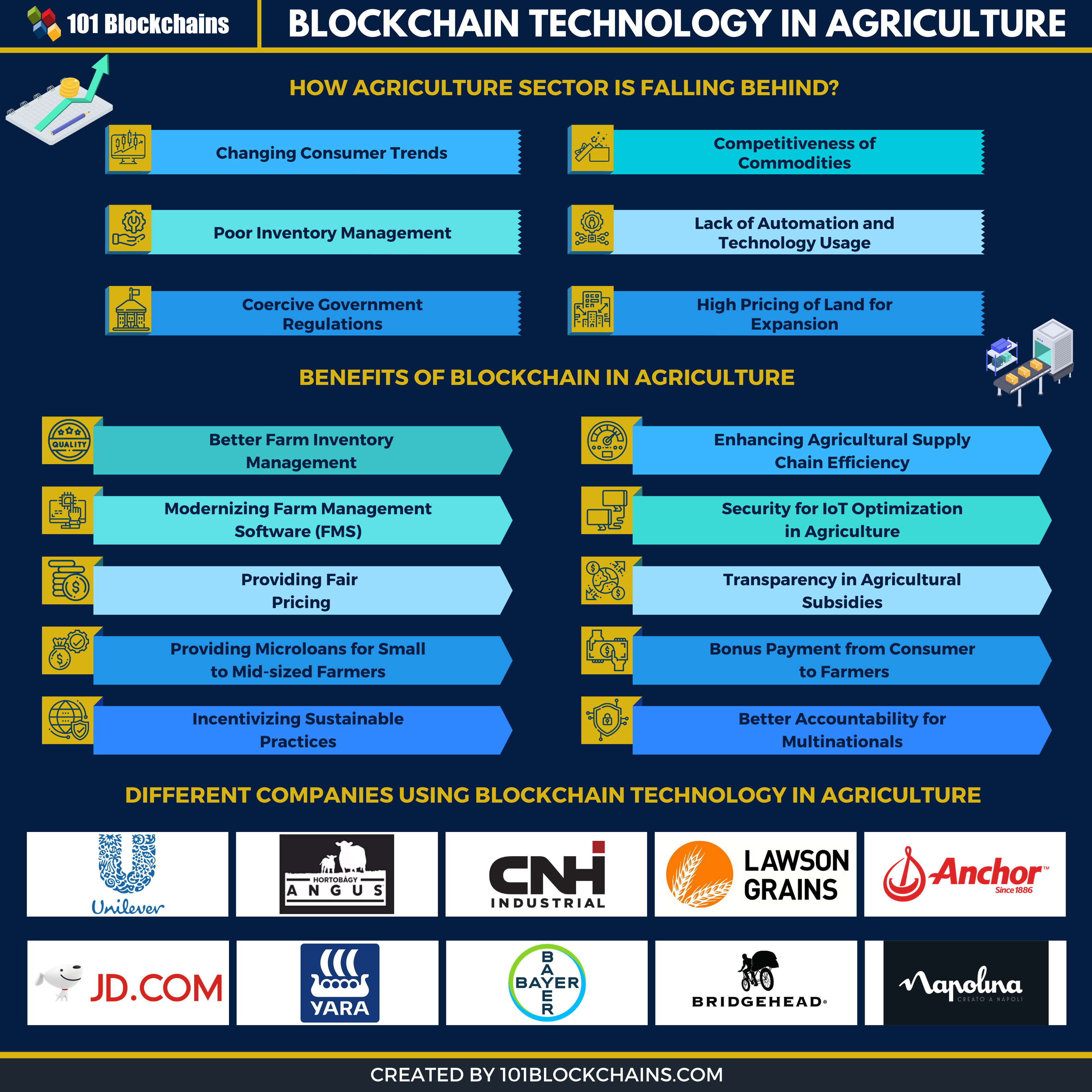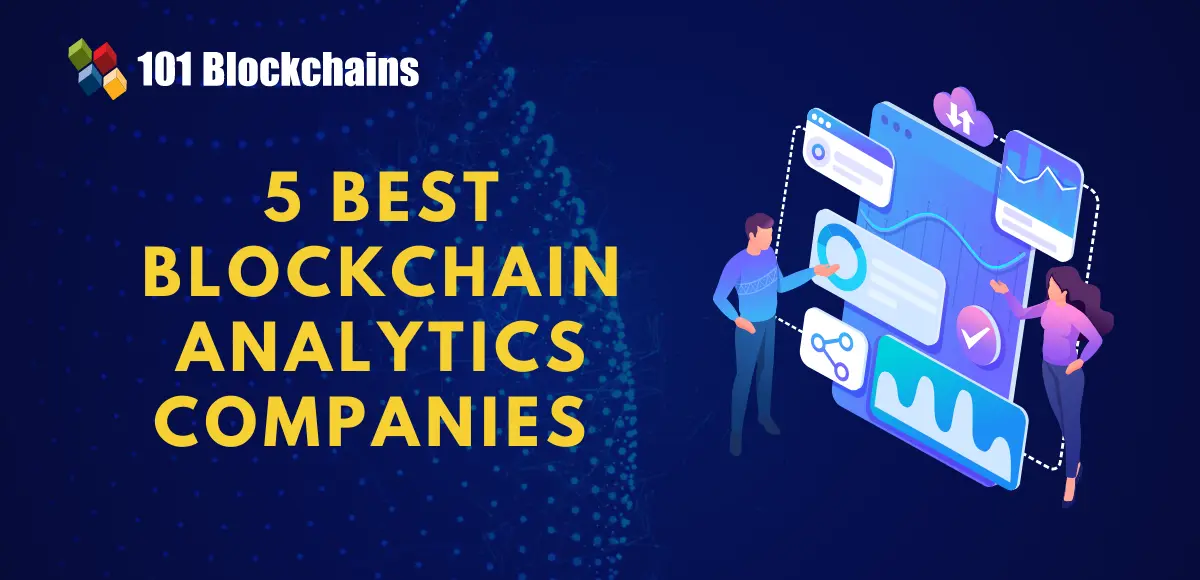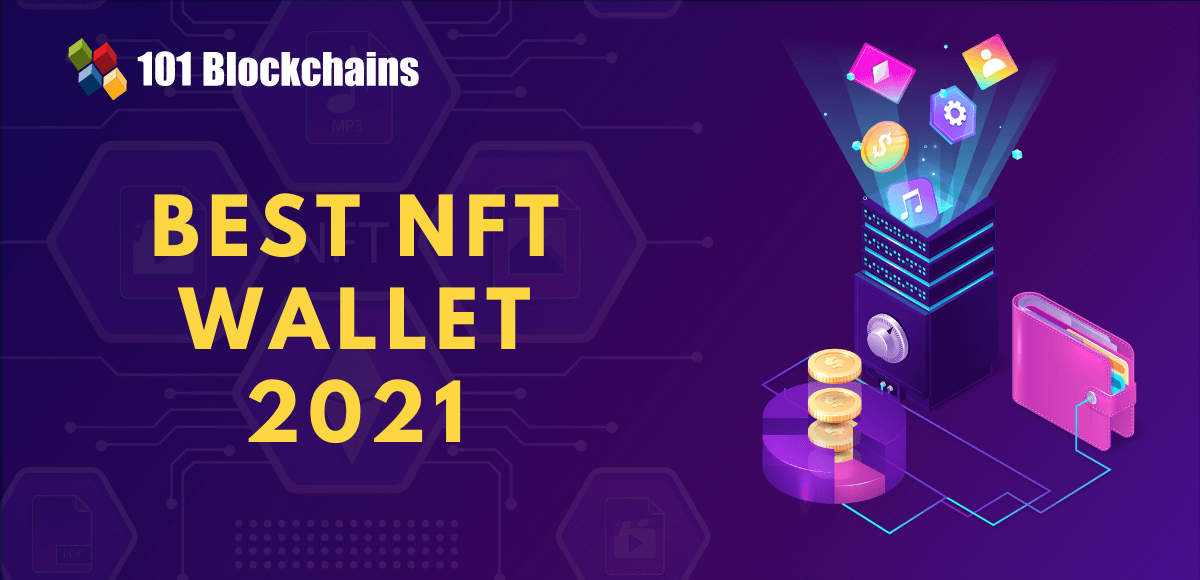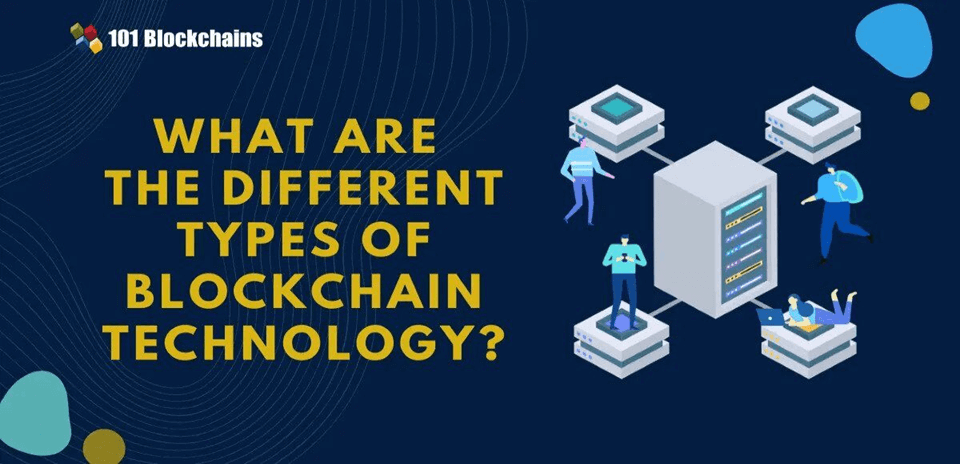Learn how blockchain truly works, master key definitions, and uncover what makes smart contracts so "smart." Dive into the fundamentals, gain valuable insights, and start your blockchain journey today!
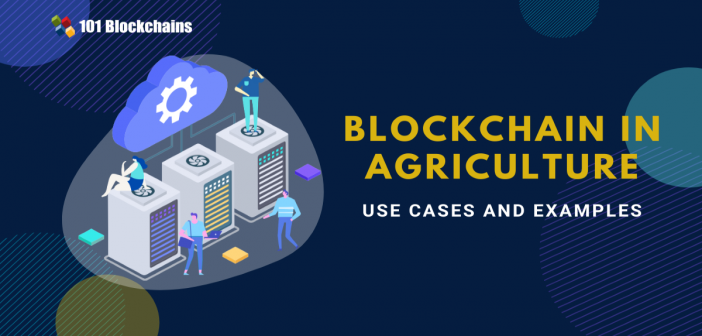
- Reviews
Hasib Anwar
- on December 14, 2020
Blockchain in Agriculture: Use Cases and Examples
The increasing challenges in the agriculture sector are making it impossible to maintain sustainability. However, according to experts, using blockchain in agriculture can shift this scenario for good. Let’s understand why blockchain is essential for this industry?
The agriculture industry contributes nearly $1 trillion to the United States GDP. So, it’s one of the most vital sectors in the world. More so, more than 21.4 million have jobs in the agriculture industry, so the stakes are relatively high for this sector.
Although this sector is exceptionally vast, many challenges still plague the sustainability of the industry. Starting from inhuman labor to a competitive marketplace, every single issue should be addressed in time. Or else, the whole ecosystem may fall apart. We can already see that some of the infrastructures in the rural areas are already falling apart. This is due to the negligence of this sector.
Therefore, blockchain can help this sector to deal with consistent threats and maintain affordability throughout the ecosystem. Any novices can use this article as a guide to using blockchain for agriculture industries.
Build your identity as a certified blockchain expert with 101 Blockchains’ Blockchain Certifications designed to provide enhanced career prospects.
Blockchain in Agriculture: How Agriculture Sector Is Falling Behind?
The agriculture industry was raging even a decade back, but over time, many issues are stacking up due to the increased complexity of the process. Due to the lack of proper attention, they are now slowing down the agriculture supply chain. So, blockchain is needed in this sector more than ever. Let’s see what these issues are –
Changing Consumer Trends
One of the most major issues is the consumer trends that keep changing constantly. Therefore, the demand for certain materials varies, as well. This becomes a problem for the farmer because most of the farmer tends to work or make a living based on single produce. On rare occasions, they go for more than one type of produce. However, due to the fluctuations in demand, they can sometimes have a large payout or a very minimal output from their investment.
Overall, the experience is quite stressful, and many farmers have to deal with moving on if they deal with losses. As there is no way for them to predict the change in trends, they fall victim to the issue.
Competitiveness of Commodities
Well, our daily life commodities can come from various sources. As these are the most demanded goods, the stake is always too high. Therefore, small farmers find it harder to compete in a ranging markets where corporate giants are playing monopoly.
This creates a huge gap between the giants and the small farmers as they have no option to get into the ecosystem without taking the burden of failing even if their produce offers better quality than the leading companies. Also, as in many cases, these farmers or small companies don’t have the resources to market their produce, which also makes them fall behind.
Poor Inventory Management
Inventory management is a massive issue in this sector, as most of the produces here are raw materials. Therefore, it does not go through any procedures to increase their shelf life. Starting from crops to meat, everything is perishable. So, they have to maintain their inventory correctly before making the sale.
However, many farming companies aren’t equipped to use advanced technology to manage their inventories. This can lead to wastage of the produces and the resources. Not to mention the losses the farmers have to bear for this. In reality, they work hard to produce the items, but all of their hard work is in vain for inventory mismanagement.
Lack of Automation and Technology Usage
Another problem of this sector is the lack of automation and technology usage. In reality, most of the farmers don’t have the budget to buy high priced farming equipment or machinery. Also, as the world is changing rapidly and technology is booming, many farming technologies are in place to help out the farmers.
But the lack of knowledge about this technology or the fund to afford these results in the farmers falling behind in the competition. In reality, big agriculture companies tend to use all the modern technology to increase their efficiency. But the small or mid-range companies can’t follow the path.
Coercive Government Regulations
Government regulations are here to keep balance in every single part of the world. But the nature of the government regulations should hinder the production of agriculture in a country. In many cases, the coercive nature of certain government laws and increasing taxation at every stage is forcing many companies to go bankrupt.
More so, in many cases, too much regulation hinders the agriculture industry’s scaling process. We don’t mean that the government shouldn’t impose any regulation on this sector. But overdoing it will only shatter the potential of a prominent sector.
High Pricing of Land for Expansion
The price of land for agricultural purposes is always changing. In many cases, the prices seem to vary greatly as the liquidity of lands is really low. Therefore, expansion in many cases is not possible due to extremely high pricing points of the lands. Not only that, but the availability of the land is also quite slim in many cases. More so, the added taxation that comes with purchasing an ample land can become a burden for many companies and farmers.
So, even if a farmer or a company is doing really well when the demand rises, they find it difficult to scale and can’t keep up with the demands of the consumers.
Increasing Infrastructure Collapses
Due to many reasons, the agricultural infrastructure in rural is slowly collapsing. It can be due to natural disasters, land losing its fertility, or mass urbanizations. Therefore, it’s hard to maintain sustainability when the other elements are not in sync with the infrastructure. Also, lack of proper modernization of this sector results in losses, and that too causes the infrastructure to collapse.
Even in big companies, they can face similar issues as the support system aren’t in place. Every single company needs elements such as roads, loans, lands, and so on to ensure the system keeps running. But the lack of these elements can hinder their business massively.
Security and Safety on Farms
Security is a massive issue on farms. On every farm, there are valuable livestock, equipment, or vehicles to transport your produce. But in many cases, if the thieves can get access to your land, then they can get access to your livestock or equipment as well. This is a common occurrence in farming and a headache for the farmers as they don’t have the resources to deal with this kind of theft.
So, even if they can manage to invest in expensive equipment, keeping them safe needs more investment in the process. And at the moment, there aren’t many technologies to offer proper safety to the farms.
Benefits of Blockchain In Agriculture
Agriculture is also another great sector that can use the features of blockchain and benefit greatly from it. Let’s check out what the primary benefits are for this sector.
-
Better Farm Inventory Management
In reality, many farming companies aren’t equipped to use advanced technology to manage their inventories. This can lead to wastage of the produces and the resources. Not to mention the losses the farmers have to bear for this. So, this is a huge burden for the farmers as they don’t have the necessary tools to deal with the problem.
But with blockchain technology in agriculture, they can change that scenario for good. Blockchain is perfectly suited for inventory management. So, it can really help out the farmers in order to maintain their inventories perfectly without any issues. The truth is that blockchain can keep track of the storage environment and notify you when produce will expire. So, you can take proper measures for that.
-
Enhancing Agricultural Supply Chain Efficiency
Another great use case of blockchain technology in agriculture is the increased efficiency throughout the industry. Due to the lack of automation and technology usage, the efficiency of this industry isn’t up to the mark. In reality, it’s more prominent for the small to mid-range farmers to not have access to high priced technologies to increase the overall efficiency of the production.
Therefore, blockchain can surely help out here. Using a blockchain immutable ledger system, it can quickly address all the elements and reduce the costing of the farming processes and increase the output’s overall efficiency.
-
Modernizing Farm Management Software (FMS)
Another one of the benefits of blockchain in agriculture is the modernization process of farm management software. In reality, farm management software is going to become mainstream quite soon. However, this software still uses the typical client-server model to operate. Therefore, they are still not capable of offering their maximum output as they could with blockchain.
So, using blockchain, in this case, can help take the FMS to a whole new level. More so, this software will have the security they need with blockchains protection. So, the farmers won’t have to worry about cyber hacks anymore.
-
Security for IoT Optimization in Agriculture
The agriculture industry needs IoT devices to keep track of their produces. More so, these devices can even offer security and safety to their equipment as well. Using the machines, they can record the condition of the weather and the land and adjust it accordingly. More so, some devices can even forecast natural calamities from beforehand. But these devices are quite vulnerable at the moment. In many cases, the cloud services they use to store the information is weak to cyber-attacks. So, security varies greatly.
But blockchain can offer help here. The benefits of blockchain in agriculture here will be safeguarding these IoT devices and offering them a better networking system to work with.
Want to understand the fundamentals of the Internet of Things (IoT)? Join the Standard & Premium Plans and Enroll Now in IoT Fundamentals Course!
-
Providing Fair Pricing
Yes, many farming companies don’t get the fair pricing they deserve for their produce. Although they work to produce crops and livestock, many wholesalers still don’t offer the value they deserve for all the work. In reality, many farmers get the bare minimum they need to survive.
So, using blockchain in the agriculture market, the scenario can change. Using a blockchain-based marketplace in place, they can see sell their products to fair buyers and can even reach more buyers than they could before. This will help them negotiate the pricing more fairly. So, the farmers can get what they truly deserve.
-
Transparency in Agricultural Subsidies
Well, we are the ones actually paying for the subsidies to agriculture. Although the government pays it, still the budget for the money comes from our taxes. But the transparency revolving around the subsidies is nonexistent. Also, in many cases, we can see favoritism, as the larger groups get more than they need, and the smaller farms don’t get enough.
Therefore, blockchain in the agriculture market can help out in increasing the transparency for this major issue. The government can use a public blockchain to transact the subsidies to the rightful farms, and the public can check whether the money is going where it should or not.
-
Providing Microloans for Small to Mid-sized Farmers
Another great blockchain technology application in agriculture is the option to get microloans. In reality, small to mid-sized farms need loans from time to time in order to run their business. However, the loan policy in banks has higher interest policies.
So, the companies are in a stressful situation as the interest rates can burden them with more loans. Therefore, using blockchain technology here can solve the issue for good. Blockchain can help them get microloans on the network from lenders around the world. With a small amount of loan, they can take on the burden of small interest rates, helping them run the business for a long time.
Start learning Blockchain with World’s first Blockchain Skill Paths with quality resources tailored by industry experts Now!
-
Bonus Payment from Consumer to Farmers
Another great use case of blockchain is the option to tip the farmers directly. As blockchain can offer provenance and the history of a processed product or the produce, consumers can see who was responsible for the produce in the first place. If the consumers are happy with the produce, they can just log into the blockchain platform to directly tip the farmers.
Here, the farmers’ wallets will stay connected to the system to get the customers’ tips. There are already many blockchain technology applications in agriculture that are working on this type of feature.
-
Incentivizing Sustainable Practices
Many of the practices in the agriculture industry aren’t sustainable, but they still exist. In reality, the issue is the overuse of pesticides that ultimately contaminates water for bathing, drinking, and cooking. This is a serious issue as it can harm people in various ways. So, without encouraging sustainable practices, this type of bad practice will keep existing.
Therefore, blockchain in the agriculture market can help to offer incentives to farmers who are willing to use sustainable methods rather than use chemicals that harm the consumers and the environment. Typically, in poor countries, this incentive feature can encourage them to use fewer chemicals and focus on more organic produces.
-
Better Accountability for Enterprises
Well, multinational companies tend to use a lot of inhuman methods to increase their efficiency, starting from illegal labor to using harmful chemicals to preserve the produce. In many cases, big corporations can also handle livestock in a very inhuman way, which is quite shocking. As there is no way for the consumer to know how the companies handle the products, they are losing their trust in them.
Therefore, blockchain technology applications in agriculture can help to increase the transparency relating to multinational companies. The consumer can see how the enterprises handle the produce and if the process is acceptable.
Not sure how to build your career in enterprise blockchains? Enroll Now in How to Build Your Career in Enterprise Blockchains Course
Different Companies Using Blockchain Technology in Agriculture
-
Yara International
Yara International is using blockchain to trace the coffee from their farmers. They are also helping out consumers see the quality and origin of the coffee and even allow to support the farmers by giving tips directly. They are currently launching the “Thanks My Farmer” app that will allow customers to help the farmers.
-
CNH Industrial NV
CNH Industrial NV is using blockchain in the agriculture supply chain to increase inventory management. This company produces, designs, and sells agricultural equipment and wants to deliver greater services to the farmers by managing their inventory. At present, they are working with IBM to work on the solution.
-
JD.com
JD.com is one of the Chinese e-commerce giants that is using blockchain technology to track its beef products from overseas. At present, it’s working with Australia’s InterAgri to get the Angus beef from the firm. In reality, they plan to use the technology to better manage the farming process and audit information relating to how the livestock was handled.
-
Bayer AG
Bayer AG is using blockchain technology to monitor agricultural products. At present, it’s working with Ant Financial to finalize the project. In reality, they plan to use the technology to aid in the digitization process of agriculture and offer high-quality produces. However, at present, we still don’t know the duration of the process of the project.
-
Lawson Grains
Lawson Grains is using blockchain technology to increase its grain farming process. At present, it’s working with AgriDigital to finalize the project. More so, they plan to use the technology to get better harvesting services. Again, they are using the platform to manage their inventory and delivery system. This is a great way to showcase and improve their efficiency.
Start your blockchain journey Now with the Enterprise Blockchains Fundamentals
-
Hortobagy Angus
Hortobagy Angus is using blockchain in the agriculture industry to implement a traceability solution. At present, it’s working with TE-FOOD to finalize the project. More so, they want to use the technology to help the farmers register information quickly to the system. This way, their consumers can directly scan the QR code and see the information themselves.
-
Unilever
Unilever is using blockchain in the agriculture industry to offer funds to smallholder farming. At present, they are working with a lot of banks in order to process the micro-funding policies. More so, they also have other players in the ecosystem as well, starting from NGOs to retailers. In reality, it’s a great initiative to help out the small farms.
-
Napolina (Princes Group)
Princes Group is actually one of Europe’s largest grocery suppliers. Napolina is one of their brands of canned goods. They are currently using blockchain in the agriculture industry to tackle the illegal labor issue in the farming environment. Using technology, they are planning to make the whole process transparent and get rid of any illicit labor problems.
-
Bridgehead
Bridgehead is using blockchain in the agriculture supply chain to increase the transparency of its processes. This company works with many small-time farmers in order to get organic produce and wants to deliver greater services to the farmers by tracing the coffee. Their consumers can just scan the QR code and will learn about the true process of farming of every production.
-
Anchor
Anchor is using blockchain in the agriculture supply chain to reduce carbon emissions from their processes. In reality, dairy businesses increase the number of carbon footprints, which is not sustainable for the environment. This company works with 10,500 farmers in order to get organic produce and wants to deliver more excellent services to the farmers by their Anchor milk.
Curious to learn about blockchain implementation and strategy for managing your blockchain projects? Enroll Now in Blockchain Technology – Implementation And Strategy Course!
Conclusion
Blockchain in agriculture has shown how technology can alter the existing processes that have been going on for generations. More so, blockchain can create the marketplace for the farmers in order to get their fair share of the value they deserve.
However, staying on top of the agriculture processes is a complex task, but still, it’s extremely necessary for the entire industry. Given the rapid growth of the technology, you should also stay informed of the recent development to stay ahead in the competition. We recommend checking our Blockchain Course as it can offer you a better realization of the blockchain spectrum.
*Disclaimer: The article should not be taken as, and is not intended to provide any investment advice. Claims made in this article do not constitute investment advice and should not be taken as such. 101 Blockchains shall not be responsible for any loss sustained by any person who relies on this article. Do your own research!

